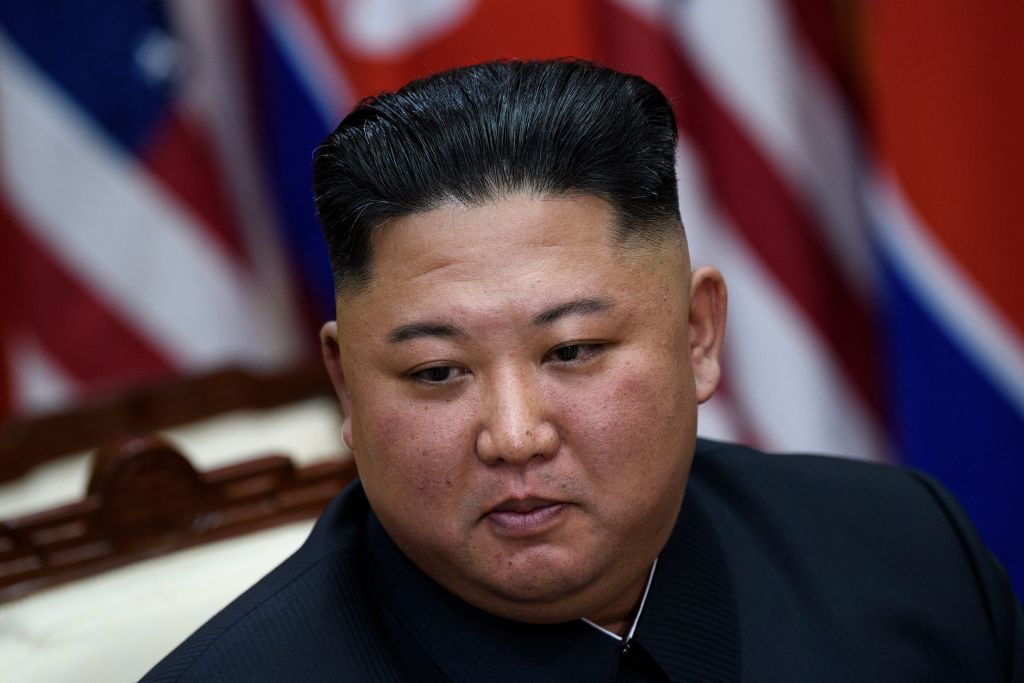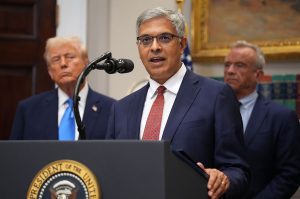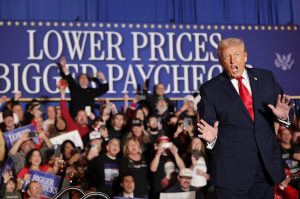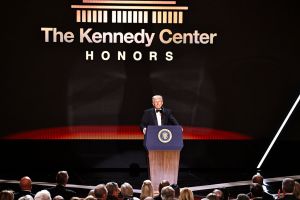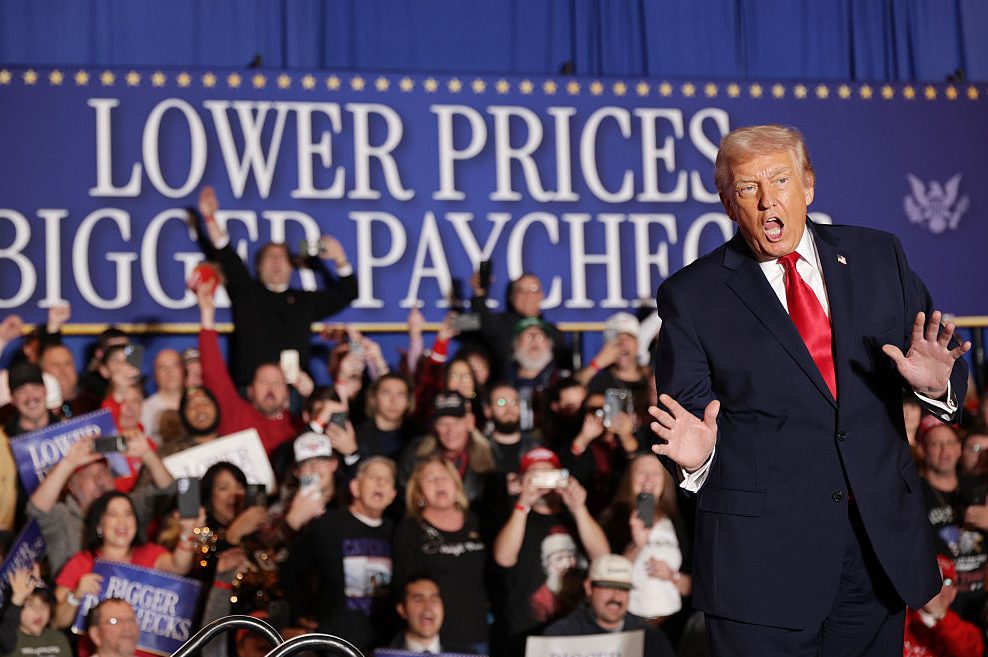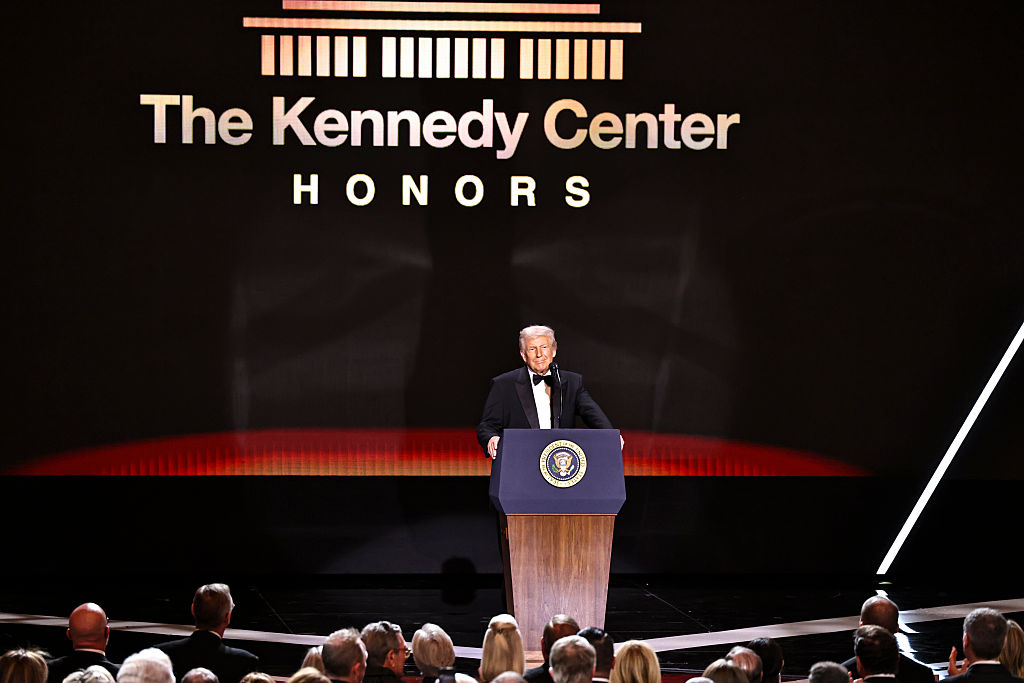North Korea now possesses a nuclear weapons arsenal that could kill millions of people in minutes. Our media, rushing to create the simple but misleading narrative that President Joe Biden has ended America’s supposed longest war, forget that Washington technically has been at war with North Korea for 71 years. It’s Pyongyang, not Kabul, that will be the real test of Biden’s foreign policy — and the real opportunity.
A few months back, the Biden administration named that conflict its top national security priority. Yet Team Biden has done little to work towards ending what can only be described as the ultimate forever war. And, just like clockwork, Pyongyang seems to always remind us that its deadly atomic arsenal is growing by the day. While it might not have hit the front page of the New York Times, it seems North Korea has fired back up its five-megawatt reactor at its main nuclear complex in Yongbyon, north of Pyongyang. None of that should be a surprise, as North Korea has consistently signaled it would never stop building ever more advanced nuclear weapons in larger quantities.
In the weeks and months to come the Kim regime — slammed in the last 20 months with floods, typhoons, international sanctions, and now a self-imposed coronavirus economic blockade that could lead to mass starvation — seems poised to lash out. Sitting on countless new weapons platforms and likely emboldened by a disastrous Afghanistan withdrawal, North Korea could very well decide to test Joe Biden by testing new missile systems and perhaps weapons platforms that could hit the US homeland with an atomic payload.
What will Joe Biden do about it? Well, looking at what he has done so far on North Korea, it looks like he will just dust off the old Obama administration playbook, what the pundit class here in Washington has called ‘strategic patience’. That means the following: Pyongyang fires off a missile, the White House calls for sanctions, international solidarity and for the PRK to come to the negotiating table whereby they will give up all of their nuclear weapons for some sort of sanctions relief that is never spelled out.
At which North Korea, always matching what they feel is an escalation with another bigger escalation, most likely tests another missile test, upping the ante.
America at some point will blame China and appeal to Beijing for help, at which point China does zip. At some point, both sides agree that tensions have reached the tipping point with Pyongyang deciding it now wants to talk. Talks then proceed for several months or several years, talks then fail, with North Korea going quiet with the world moving on.
However, the cycle always repeats itself.
And yet, we did have a chance, albeit a small chance, to break that cycle. Back in 2018, then-president Donald Trump took a gamble, offering to meet the portly pariah of Pyongyang, none other than Kim Jong-un himself, to see if there was some way to ease tensions and get the so-called hermit kingdom to give up its nukes. The result of that diplomacy, two summits and one historic meeting where President Trump actually walked into North Korea, did lead to progress.
North Korea has not tested an ICBM that can strike the US homeland or detonated a nuclear weapon since 2017. In fact, in Hanoi back in 2019, Trump-Kim summitry might have even led to a first step towards containing and clawing back North Korea’s nuclear arsenal. Sadly, with Trump under siege back home — thanks to Democrats who scheduled Michael Cohen’s testimony at the same time of summit — and then-national security adviser John Bolton whispering to the president that he could walk away in order to project strength, the talks ended in failure.
Former Trump officials have said to me time and time again that had there been no Cohen hearing, it seems entirely possible the president would have taken the offer Kim made, a deal that traded just the Yongbyon nuclear complex for the most biting sanctions, and worked out something much more comprehensive. In fact, Trump seems to have hinted at this on Twitter.
So what happens now with North Korea?
For the moment, Team Biden is trapped in reacting to its self-imposed Afghanistan disaster, trying to figure out some way to close the terrorist Pandora’s box that it created and opened all at the same time. But in the months to come, and especially as some sort of normal is achieved in the coronavirus pandemic globally, North Korea will surely start its escalatory cycle.
The only way to break that cycle is for Joe Biden to do what no US president has dared to do: take the idea of full-denuclearization and make it aspirational as opposed to the first and only metric of success with North Korea. This administration needs to admit to itself a hard foreign policy truth — something it showed it can do by leaving Afghanistan knowing it was an unwinnable war, putting aside how the withdrawal was conducted — that Pyongyang is never giving up its nukes.
Do that, and do the politically prudent thing and make denuclearization the end goal of a long process of creating a new relationship with North Korea, and a whole new range of diplomatic options opens up.
For example, why not put out a feeler that the Biden administration is willing to offer sanctions relief on one area, say the restoration of half of the PRK’s textile exports, worth several hundred million dollars, for say the removal of 1,000 long-range artillery pieces pointed at Seoul? If that were to lead to a smaller, non-nuclear deal, the next steps could be ending the Korean War once and for all, a transformative event far more meaningful than ending the Afghanistan war could ever be.
Liaison offices could then be opened, followed by more talks on conventional arms control followed by small steps towards capping Pyongyang’s nuclear and missile programs while also ensuring Kim would never sell that technology to the highest bidder. More sanctions would come off in a step-by-step process, exchanging concession for concession. If things were to go well enough, the US could even massively scale down its overall military footprint on the Korean Peninsula, depriving the north of the reason it has millions of men under arms and nuclear weapons in the first place.
Now, I have to be honest: the above scenario is most likely just wishful thinking on my part, especially as Biden will likely be so risk-averse on national security issues that he will likely follow the Obama playbook to the letter. However, someday, a US president will come to understand that escalatory spirals with a nuclear-armed state could lead to a miscalculation that turns the longest-running forever war into a nuclear holocaust that would be a historic tragedy. Let us pray to God that never happens.
Harry J. Kazianis is senior director at the Washington DC-based Center for the National Interest.



